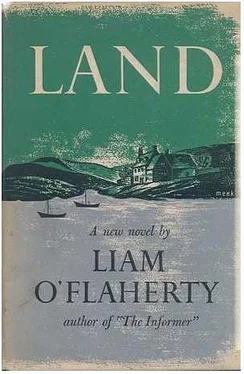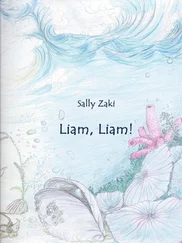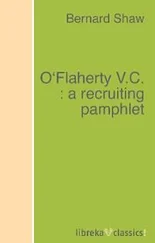Liam O'Flaherty - Land
Здесь есть возможность читать онлайн «Liam O'Flaherty - Land» весь текст электронной книги совершенно бесплатно (целиком полную версию без сокращений). В некоторых случаях можно слушать аудио, скачать через торрент в формате fb2 и присутствует краткое содержание. Город: London, Год выпуска: 2011, ISBN: 2011, Издательство: Bloomsbury Publishing, Жанр: Проза, на английском языке. Описание произведения, (предисловие) а так же отзывы посетителей доступны на портале библиотеки ЛибКат.
- Название:Land
- Автор:
- Издательство:Bloomsbury Publishing
- Жанр:
- Год:2011
- Город:London
- ISBN:9781448203888
- Рейтинг книги:3 / 5. Голосов: 1
-
Избранное:Добавить в избранное
- Отзывы:
-
Ваша оценка:
- 60
- 1
- 2
- 3
- 4
- 5
Land: краткое содержание, описание и аннотация
Предлагаем к чтению аннотацию, описание, краткое содержание или предисловие (зависит от того, что написал сам автор книги «Land»). Если вы не нашли необходимую информацию о книге — напишите в комментариях, мы постараемся отыскать её.
Land — читать онлайн бесплатно полную книгу (весь текст) целиком
Ниже представлен текст книги, разбитый по страницам. Система сохранения места последней прочитанной страницы, позволяет с удобством читать онлайн бесплатно книгу «Land», без необходимости каждый раз заново искать на чём Вы остановились. Поставьте закладку, и сможете в любой момент перейти на страницу, на которой закончили чтение.
Интервал:
Закладка:
“I forgive you, child,” she said at length. “You have a pure heart.”
“Thank you,” Lettice whispered.
She put the palm of Elizabeth’s hand against her forehead and added:
“You have suffered so much in your life. So much.”
“May God protect you, child,” Elizabeth said, stroking the girl’s hair tenderly. “May He show you, too, that real happiness comes from bowing …”
She was interrupted by a loud knocking at the hall door. Lettice jumped to her feet at once. Elizabeth shuddered.
“I must answer the door,” Lettice said. “Annie has gone to the village.”
On reaching the head of the stairs, Lettice looked down and saw that her father had already opened the hall door to a man of extremely odd appearance.
Chapter VI
The visitor was a priest named Francis Kelly, long since barred from exercise of his duties by edict of the Church. He had been living in the tavern of his brother-in-law at Clash for the past twelve years. That he made his home in a tavern was no indication of the reason why disciplinary action had been taken against him. In fact, he was of a most ascetic nature. He had been punished for taking part in the abortive insurrection of 1867.
Now in his forty-sixth year, he was short of stature, very thin, with extremely bowed legs that made his arms and back look unnaturally long. His large head hung forward a little, causing his shoulders to stoop. This physical ugliness was due to a disease contracted as a child, which was known as famine fever. His face was triangular in shape, dark-skinned and haggard, with sunken eyes. His hair was grey and he wore it cut close like a monk. His clerical costume was very shabby. He wore hob-nailed boots and he carried an ash plant that was almost as tall as himself.
Raoul was astonished to find such an odd-looking man at the door.
“Are you Mr. St. George?” Father Francis said.
“Yes,” said Raoul. “Who might you be?”
“Francis Kelly,” said the priest. “I’d feel obliged if I could have a few words with you in private.”
Raoul led the way into his study, a small room that opened off the hall. Father Francis raised his feet high when he walked, on account of his heavy boots being too large for him. He went direct to the hearth, on which a small turf fire was burning. He sat down, laid his ash plant on the floor carefully, held his hands to the blaze for a few moments and then rubbed them together. He remained hatted. Presently, he took a plug of tobacco and a knife from his pocket. While paring some tobacco on to the palm of his hand, he glanced all round the room.
There was only a meagre light, the two windows being somewhat obscured by the trellis vines and bushes outside. The walls were lined with books, right up to the ceiling. On the floor, also, there were piles of books. A deal table that stretched almost the whole length of the wall was littered with manuscripts and writing materials. A pipe stand and some chairs completed the furnishing. The floor was naked.
“Ha!” said Father Francis, turning towards Raoul after he had finished his examination. “I see you are a writer. What do you write?”
“You said you had a message,” Raoul said curtly.
He was annoyed by his visitor’s casual manner.
“I write ballads,” Father Francis said imperturbably. “That’s why I asked what you were writing. I mean no offence. You may think that ballads are vulgar things of no consequence. If you think so, you are wrong. Ballads are very important, because people sing them if they are any good. They are the poetry of the people. Poetry should be sung. That’s the only way it can become part of life, what it should be, instead of being buried in books. Ballads can overthrow empires and bring new nations into existence.”
Raoul sat down opposite the priest. He stroked his beard and smiled. He was beginning to feel attracted by his strange guest.
“Who are you?” he said.
“I told you that my name is Francis Kelly,” said the priest. Raoul shrugged his shoulders and said:
“Names are unimportant.”
“You are right,” Father Francis said. “It’s impossible to give a name to the human soul.”
There was silence for a little while. The priest took a clay pipe from his pocket and stuffed the pared tobacco into the bowl. Then he took a live coal from the fire with the tongs, held it against the bowl and sucked hard several times. When clouds of smoke began to issue from his mouth, he threw the coal back into the fire and wiped his lips with a large red handkerchief. Then he looked at Raoul, half-closed his eyes and spoke in a mysterious whisper, hardly opening his lips.
“Would you care to have a talk with young O’Dwyer now?” he said.
“I don’t follow you,” said Raoul cautiously.
Father Francis laughed.
“I don’t blame you for being careful,” he said. “Everybody in the county knows that I’m a Fenian, but I might be a government spy as far as you know. Spies often dress like priests.”
“I’m sure you write excellent ballads,” Raoul said with a smile. “I’m looking forward to reading them. Unfortunately, I can’t sing.”
“You can do far more important things,” said Father Francis. “That was an important thing you did a month ago, when you found O’Dwyer unconscious at the bottom of the settle-bed in your kitchen. You made many a friend among the people that day. If you had a mind, you could do far more important things still.”
“You interest me,” Raoul said.
“O’Dwyer said you invited him to visit you,” the priest continued.
“Where is the young man?” Raoul said.
“He’s outside there,” said Father Francis, nodding towards the window, “waiting for a signal from me.”
“Really?” said Raoul. “Why didn’t he come with you?”
“I wanted to see if the coast were clear,” the priest said. “Your sister doesn’t sympathise with us and you yourself might have changed your mind. Then again, O’Dwyer is in a bad state of mind. The Government people are playing with him, the way a cat plays with a mouse. Having no evidence that could convict him before a jury, they are pretending to look the other way. Yet they watch him the whole time, ready to pounce when it suits them. That sort of thing is hard on a young man like O’Dwyer. He’s in a bad state. I thought I’d tell you that first, so you wouldn’t be offended by his strange manners. By your leave, I’ll call him now.”
“By all means,” Raoul said.
The priest went to the window, opened it wide, leaned out and whistled softly. There was an answering whistle almost at once. Then the priest went out to open the hall door.
“This is all very fortunate,” Raoul said, caressing his beard. “I feel that I’m on the verge of finally becoming involved in something decisive.”
O’Dwyer seemed to be in great spirits when he came into the room, contrary to what Father Francis had said about his temper. He was wearing a well-fitting suit of blue serge that made him look very smart. With his face lighted by a gay smile, he came over to Raoul, shook hands and began to apologise for the trouble he had caused on their previous meeting.
“How is the cut?” Raoul interrupted. “Upon my soul! I see no trace of it.”
“It was only a scratch,” O’Dwyer said with a shrug of his shoulders. “It has been healed for weeks.”
“Do sit down,” Raoul said. “I envy your strength. One moment you were lying unconscious on the kitchen table, dead to the world, as Annie Fitzpatrick would say. The next moment you were gone. I was very impressed by your vitality. I wanted terribly to know why a man of your great energy and courage could behave in such a stupid fashion.”
Читать дальшеИнтервал:
Закладка:
Похожие книги на «Land»
Представляем Вашему вниманию похожие книги на «Land» списком для выбора. Мы отобрали схожую по названию и смыслу литературу в надежде предоставить читателям больше вариантов отыскать новые, интересные, ещё непрочитанные произведения.
Обсуждение, отзывы о книге «Land» и просто собственные мнения читателей. Оставьте ваши комментарии, напишите, что Вы думаете о произведении, его смысле или главных героях. Укажите что конкретно понравилось, а что нет, и почему Вы так считаете.












